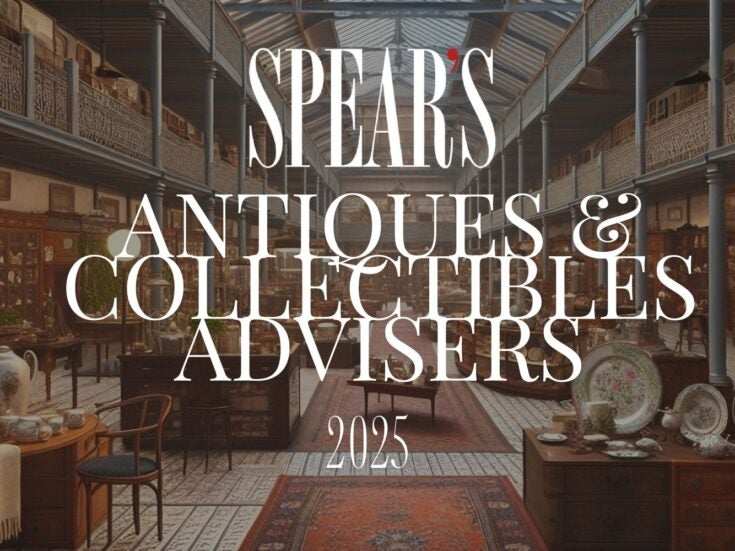
Inventing Elsa Maxwell: How an Irrepressible Nobody Conquered High Society, Hollywood, the Press, and the World
Sam Staggs
St Martin’s Press, 352pp
Review by Christopher Silvester
Elsa Maxwell was a 20th-century phenomenon. If the event-management business wanted a patroness saint, then she fits the bill better than anyone, having thrown about 3,000 parties in her lifetime and attended many more. Indeed, she became what Sam Staggs calls ‘a one-woman Coney Island of entertainments in palaces, hotels, yachts, casinos, stately homes, even once in the Egyptian desert’.
Other practised partygoers were impressed. ‘Old battering-ram Elsa always gives the best parties,’ said the Duke of Windsor, whether they were costume parties, murder parties, barnyard parties, milking parties or parties with greased pig contests. John Gielgud thought the last of these ‘very biblical and odd!’, though Maxwell remarked that ‘society must be taken back to nature now and then’.
Yet Maxwell was more than a mere party-giver. She was a 20th-century brand. Staggs describes her as ‘a gadabout, and a virtual Smithsonian of name-dropping’, but notes that because ‘she knew all those whose names she dropped… she was Mount Rushmore with jowls’.
Indeed, her appearance, portly and butch and ugly (‘shaped like a cottage loaf with currant eyes’, said one commentator), was often the butt of jokes, in newspaper columns, the patter of radio comedians and songs. As late as 1961, showbiz columnist Earl Wilson reported that she had ‘taken a bad fall’ on the Guinness yacht in Monte Carlo, adding that ‘the yacht is expected to recover’. She was one of the most photographed ugly people on the planet.
She was also a controversialist, who used the press, and in its earliest days the television chat show, to her advantage. When she wasn’t the target of other people’s quotes, she was always quotable herself, often outrageously so.
While promoting herself as a stickler for social etiquette who advised prompt replies to party invitations, she responded to one such from deposed King Farouk of Egypt with a prompt telegram to his equerry, saying: ‘I do not associate with clowns, monkeys, or corrupt gangsters.’ This in turn became the subject of a much-reported defamation suit brought by the aggrieved former monarch.

Maxwell was born in a dreary backwater called Keokuk, Iowa, and raised among the middle class in San Francisco. She became a piano accompanist for a lady vaudeville trick singer. They toured Europe and visited South Africa, and she sent home hugely exaggerated accounts of her brushes with royalty and aristocracy.
Subsequently she became a nomad who flitted between America and Europe. In Hollywood she wrote for, and appeared in, the fan magazines, and did cameos in a couple of movies; and she was an early booster of Monaco as a playground for the rich and famous.
My favourite Maxwell story was told by Hollywood gossip columnist Hedda Hopper in her memoirs. At a lunch, no fewer than four society ladies from different cities discovered that they had each paid the funeral costs for Elsa’s mother after she had sent them begging messages.
A similar incident involved Cole Porter and Lady Mendl each being tricked into paying $5,000 to help Elsa’s sick mother, but while Lady Mendl was outraged at having been duped, Porter merely laughed. Maxwell was ‘always strapped for ready money’ (her words) and relied on wealthy ladies to give her ‘substantial checks at Christmas or on my birthday’.
Was Maxwell a lesbian? Well, she certainly wasn’t ‘gay’ in the modern sense. Homosexual identity did not interest her in the way that social identity did. The evidence of her lesbianism is persuasive, though entirely circumstantial, and she was practically asexual.
She was married in all but name for almost 50 years to ‘Dickie’ Gordon-Fellowes, a daughter of the Scottish landed gentry, who had affairs with men and women on the side. She experienced a coup de foudre over Maria Callas in the late Fifties and pursued her relentlessly, though forlornly. At the same time, she was scornful of what she called ‘sash boys’ (flamboyant male homosexuals) and gay gigolos.
Staggs grapples with this most protean of biographical subjects and sometimes allows her to get the better of him, forcing his readers into needless digressions. Despite his best efforts, she remains an enigma, especially where her finances are concerned. Was her self-invented status revenge for social slights experienced during her San Francisco childhood?
To find the answer to her psyche, says Staggs, would require ‘a Proust or a Henry James’. Nonetheless, he perkily reveals numerous fragments of her sparkling, exasperating and sometimes deeply conflicted glory.






